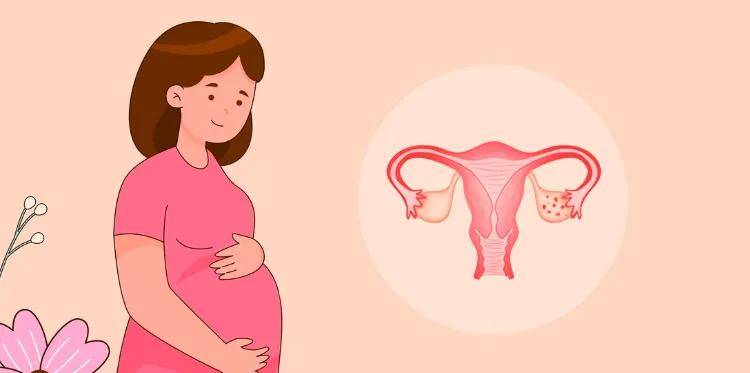Polycystic ovary syndrome (PCOS), a common gynecological disease caused by genetic and environmental factors, may lead to infertility in reproductive-age women in addition to affecting health.
If diagnosed with PCOS, does it automatically mean infertility? Can women with PCOS get pregnant directly through ovulation induction?
We have invited Director Cheng Yali, who has nearly 30 years of experience in clinical gynecology and infertility, to provide professional answers to PCOS women with fertility needs.
1. PCOS ≠ Infertility
PCOS is an endocrine system disorder characterized mainly by irregular or absent periods and high androgen levels. However, women with normal menstrual cycles may also have PCOS.
The impact of PCOS on pregnancy mainly involves two aspects:
① Female egg development is influenced by endocrine regulation, so PCOS can affect the normal development, maturation, and release of eggs, leading to infertility.
② High levels of androgens in PCOS patients may cause masculine features (such as excess hair) and possibly lead to female sexual dysfunction, negatively affecting fertility.
PCOS can cause infertility, but it is not an absolute correlation. Moreover, even if infertility occurs due to PCOS, the majority of patients can conceive and give birth if treated symptomatically in time.
2. For PCOS women aiming to conceive, direct “ovulation stimulation” is not advisable
Ovulation induction is a treatment that involves the use of medication or other therapies to stimulate the simultaneous development of multiple follicles to enhance the chances of conception, which is a common method to help PCOS patients get pregnant.
Although ovulation induction therapy is an effective way to assist in pregnancy, not all PCOS patients can conceive through ovulation induction.
PCOS patients with fertility needs should first determine the severity of their condition before undergoing targeted fertility treatments.
Ovulation induction therapy is typically considered for PCOS patients who have not resumed ovulation spontaneously even after lifestyle adjustments, anti-androgen therapy, and improved insulin resistance treatment. In cases of severe PCOS with poor follicle development and thickened capsules, laparoscopic ovarian drilling is performed to open the passage for egg release before proceeding with ovulation induction therapy, thus increasing the chance of conception.
It is crucial to emphasize that ovulation induction should always be conducted under professional medical guidance. Self-treatment should be avoided at all costs, as it may not only fail to produce the desired effects but also harm the body and ovaries due to excessive medication and indiscriminate ovulation stimulation.
3. While undergoing ovulation induction for fertility assistance, focus on these two aspects
Proper monitoring of ovulation process
During ovulation induction treatment, patients need to monitor their ovulation process carefully. This allows timely observation of follicular development to determine whether adjustments are needed in the dosage and timing of ovulation stimulation medications.
Additionally, understanding the ovulation process helps in identifying the more fertile “ovulation period,” significantly improving the chances of conception.
Lifestyle interventions
Evidence suggests that lifestyle interventions (diet, exercise) for weight reduction contribute to improving insulin resistance, excessive androgen levels, and other symptoms, potentially restoring ovulation and enabling normal pregnancy in some patients. This, in turn, enhances the smooth progression through pregnancy and successful childbirth later on.
Therefore, lifestyle interventions are essential for PCOS patients undergoing ovulation induction therapy. During treatment, maintaining a balanced diet, moderate exercise, adequate sleep, and a positive mindset are crucial to developing healthy living habits.


